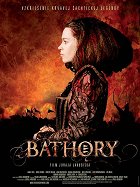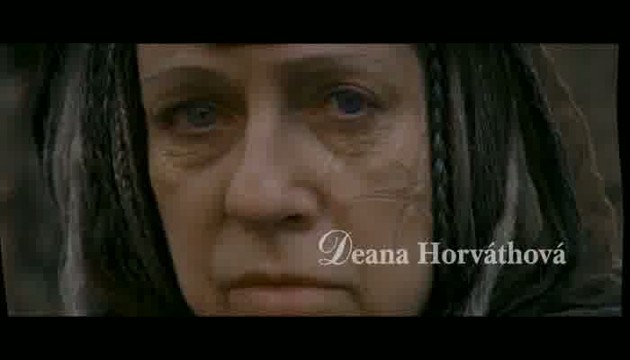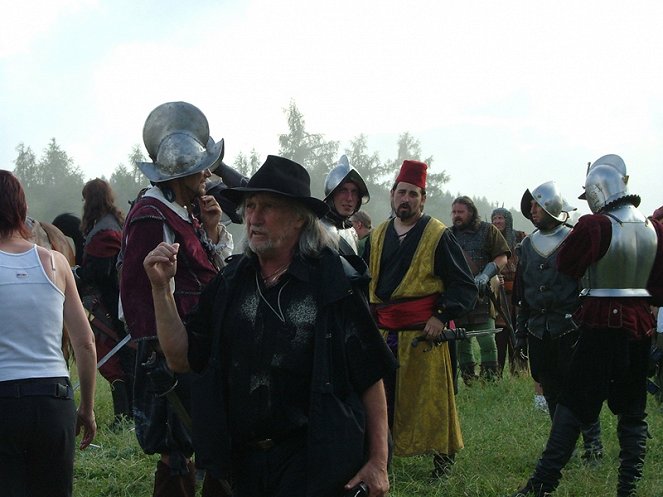Réalisation:
Juraj JakubiskoScénario:
Juraj JakubiskoActeurs·trices:
Anna Friel, Karel Roden, Vincent Regan, Hans Matheson, Deana Horváthová-Jakubisková, Bolek Polívka, Jiří Mádl, Anthony Byrne, Lucie Vondráčková (plus)Résumés(1)
"The gruesome tale of Countess Elizabeth Bathory, notorious yet obscure, has been recounted by historians, writers, poets, playwrights, musicians, painters and moviemakers. Tradition has it that Countess Bathory was the greatest murderess in the history of humankind, as documented by her entry in the Guinness Book of Records. She tortured her victims, exclusively women, before killing them. She bathed in their blood, and tore the flesh from their bodies with her teeth while they were still alive. But is that really true? In four centuries, no historical document has been found to reveal what had exactly happened. The plot of my film diametrically opposes the established legend. My story is about a defenseless widow who owns more property and riches than the king himself and who, as a result, becomes a victim of scheming from on high." - Juraj Jakubisko (Metrodome Distribution)
(plus)Vidéo (10)
Critiques (10)
Dans les moments intimes et intenses, bien joués par de très bons acteurs. Dans les scènes grandioses, mais drôles, et avec de belles prises de vue extérieures, on parvient à compenser les décors bon marché. Remarquez aussi comment parfois il se comporte comme un figurant… euh. Et quand je ne sais pas trop où aller, car mon histoire n'a pas de structure dramatique, je la divise en trois phases pour lui donner un sens... euh. C'est simplement le genre de "superproduction" tchécoslovaque attendue (gâchée par l'optique télévisuelle). Juraj Jakubisko est pourtant une personne et un artiste si inspirants et sympathiques... Bathory est une matière pour Cronenberg et non pour un conteur poétique slovaque.
()
Chroniques d’Erzebeth est divisé en trois parties qui sont intitulées d’après les personnes qui ont eu le plus d’influence sur la vie d’Élisabeth. La première partie m’est apparue comme un drame historique où l’on retrace la vie de couple d’Élisabeth et de Nádasdy sur fond de guerre contre les Turcs. La deuxième partie est un mélange de genres et je dois vous signaler que je m’y suis quelque peu perdu, car je n’ai pas fait le lien entre certaines scènes. Puis, deux nouveaux personnages se sont introduits dans le récit et m’ont dérangé pendant toute la durée restante, à savoir les moines incarnés par Bolek Polívka et Jiří Mádl. Heureusement, la troisième partie, qui traitait principalement de la guerre personnelle entre Élisabeth et Thurzó, était sublime. En conséquence, je dois porter mon évaluation à quatre étoiles. J’apprécie le fait que Jakubisko n’a pas suivi le roman de Jožo Nižnánsky mot pour mot et qu’il a choisi de dépeindre la comtesse en tant que personnage historique réel en prenant la peine de faire des recherches – même si György Thurzó affirme que « les gens préfèrent les légendes à la vérité ». Sauf que Jakubisko est le réalisateur et qu’il n’a pas besoin de s’abaisser à suivre les desiderata du public en faisant un film d’horreur. Un seul regret : les moines agaçants et l’overdose de Polívka !
()
A major misstep and a cynical mockery of all those who believed the advertising campaign about "the most expensive Czech-Slovak film." And to dryly reply that "you definitely can't see where the money went in the film" is not enough for me this time. The "cleansing" of the legend itself is not bad at all, as Anna Friel is excellent and Karel Roden takes over every scene, but... where the plot requires a few more sentences and two more shots to explain "why and how?", Jakubisko prefers to play lyricist in mono-thematic images of "drug highs" and plenty of nudity. Together with a couple of cameramen, he "paints" the surrounding landscape fantastically, and even in the cheap exteriors of the village he doesn't hold his breath. But then there’s the memory of the battle with the Turks and the viewer is back in the land of Central Europe, where we apparently cannot be as worldly as we would like. Sometimes big shoulders, foreign names, and a big wallet are not enough, which is a pity because I was looking forward to this film.
()
I feel that the script was written by Pat and Mat, or at least they edited it, because such a choppy, confused narrative is something you don’t see every day. The first half was still narratively decent, but it got worse and worse as it went on. The story failed to draw me in, I didn't live with the main character, I was indifferent to her fate, and by the end I was so numb that even if the inventive Polívka and Mádl had constructed a plasma TV, I wouldn't have been snapped out of my lethargy. What I was most worried about – the production design and the cinematography – were quite acceptable by Central European standards, although it is true that the completely polished and ironed costumes of the villagers and Turks looked more like an advertisement for laundry detergent, and fell more into the realm of Troska's fairy tales. 3* for the visuals, the courage to embark on such a monstrous project and the effort to embrace the legend of Countess Bathory in an original way.
()
Lots of people criticize Jakubisko for choosing his own path and not following in the footsteps of Nižnánský’s novel. But I thank him for that. You see, I am allergic to Jožo’s “Čachtická Paní". Black and white, slap-dash nonsense. On one side terribly mean noblemen who don’t have anything better to do than spend sleepless nights thinking up how best to be mean to regular folks, not forgetting then to share their diabolical plans in a fit of crazy laughter to a poor woman who is of course sensible, moral, always honest and absolutely principled without any blemish on her. All this presented in a style that wouldn’t have gotten an F even in elementary school. Not to speak about the incredible frequency of clichéd sentences like “All around was thick forest and it was so dark that it could be cut with a knife." No, thank you. At least I found Jakubisko’s “realistic" version at least likeable, even though it is still the same legend, just inside out. Here, Elizabeth is portrayed almost like a saint and the only source of evil is Thurzó and his wife. So this has nothing to do with being realistic. Unfortunately Juraj chose to worst possible running time. It’s too short for what he wants to say. And it’s too long for what he should have wanted to say. His approach of including a bit of everything, resulting in nothing in the end just doesn’t work. He should have simply edited out anything that doesn’t directly concern the conflict between Báthory and Thurzó. Leaving everything else for a TV version lasting several hours. Among its strong points, I should certainly highlight the interior camerawork, the music, the costumes and the main cast (primarily Anna Friel and Karel Roden). However, the rest of it isn’t so great. And it’s a shame, because I wouldn’t hesitate to rate the main storyline very highly, while the rest of it (mainly the horrendous post-production dubbing and awful exterior camerawork) deserves barely two stars. And I would give zero stars for the Monks duo, utterly superfluous, combining the Name of the Rose with the ingenuity of the central pair from Stoppard’s play “Rosencrantz a Guildenstern Are Dead". So a little higher than mediocre, hiding a diamond-tipped needle that you occasionally glimpse shining in the corner of your eye, but that immediately disappears again into a rotting haystack.
()



Annonces